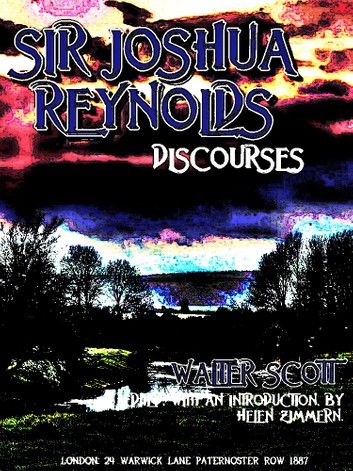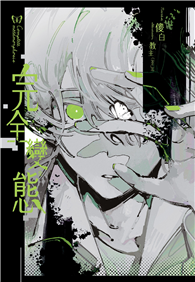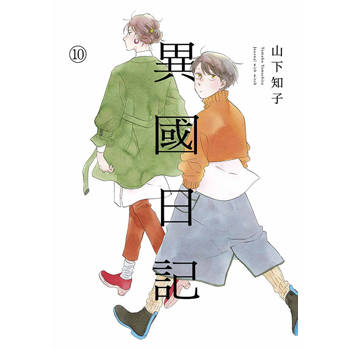| FindBook |
有 1 項符合
Sir Joshua Reynolds' Discourses的圖書 |
 |
Sir Joshua Reynolds' Discourses 作者:Sir Joshua Reynolds,Helen Zimmern 出版社:WALTER SCOTT 出版日期:2015-03-05 語言:英文 |
| 圖書選購 |
| 型式 | 價格 | 供應商 | 所屬目錄 | 電子書 |
$ 68 |
藝術家、建築師與攝影師 |
|---|
| 圖書館借閱 |
| 國家圖書館 | 全國圖書書目資訊網 | 國立公共資訊圖書館 | 電子書服務平台 | MetaCat 跨館整合查詢 |
| 臺北市立圖書館 | 新北市立圖書館 | 基隆市公共圖書館 | 桃園市立圖書館 | 新竹縣公共圖書館 |
| 苗栗縣立圖書館 | 臺中市立圖書館 | 彰化縣公共圖書館 | 南投縣文化局 | 雲林縣公共圖書館 |
| 嘉義縣圖書館 | 臺南市立圖書館 | 高雄市立圖書館 | 屏東縣公共圖書館 | 宜蘭縣公共圖書館 |
| 花蓮縣文化局 | 臺東縣文化處 |
|
|
Example in this ebook
Sir Joshua Reynolds—to whom is the name unfamiliar? to whom, hearing it, does not appear in mental vision the equally familiar autograph portrait of the deaf artist? This picture, painted originally for Mr. Thrale, shows us the painter "in his habit as he lived," spectacles on nose, ear-trumpet in hand—in short, exactly as he was known to his intimates in his latter days in domestic life. Another autograph picture of the artist in younger life hangs to-day in the National Gallery. Close by is seen the portrait by the same hand of his equally illustrious friend, bluff, common-sense Dr. Johnson, whom he represents as reading and holding his book close to his eyes after the manner of the short-sighted. It would seem that this mode of representation roused Dr. Johnson's ire. "It is not friendly," he remarked, "to hand down to posterity the imperfections of any person." This comment of the doctor's is equally characteristic of the man and his times. At so low an ebb was art and art criticism in those days, that people less learned than Johnson failed to grasp the truth of Reynolds' dictum, now become almost a commonplace, that a portrait but receives enhanced value as a human and historical document if it makes us acquainted with any natural peculiarity that characterises the person delineated. Johnson rebelled against the notion he deduced from this circumstance that Sir Joshua would make him known to posterity by his defects only; he vowed to Mrs. Thrale he would not be so known. "Let Sir Joshua do his worst, . . . he may paint himself as deaf as he chooses, but I will not be blinking Sam."
In this anecdote, in this juxtaposition of two great names, each thoroughly representative of their epoch, can be traced both the cause of Sir Joshua's success, and of the difficulties against which he had to strive. Reynolds may with truth be named the father of modern English art, for before him English art can scarcely be said to have existed, since what was produced on British soil was chiefly the work of foreigners. The records even of this older art are sufficiently barren. It would appear that in the reign of Henry III. some foreign artists were invited over to decorate Winchester Castle, but of them and their works little trace remains. At the time when Italy was producing her masterpieces no native artist of whom we have record bedaubed canvas in Great Britain; and when the pomp-loving Henry VIII. wished to vie with his great contemporaries, Charles V., Leo X., and Francis I., he had to turn to the Continent for the men to execute his desires. That he himself had no true taste or love for the arts is well known; it was purely the spirit of emulation that prompted him. How crude were his own art notions may be gathered from the written instructions he left for a monument to his memory. They serve equally to illustrate the state of public taste in England at a period when Italy was inspired by the genius of Michael Angelo, of Raphael, and of Titian. The memorandum directs that "the king shall appear on horseback, of the stature of a goodly man; while over him shall appear the image of God the Father, holding the king's soul in his left hand, and his right extended in the act of benediction." This work was to have been executed in bronze, and was considerably advanced when Elizabeth put a stop to its progress. It was afterwards sold by the Puritan parliament for six hundred pounds. Still, for all his own artistic incapacity, it is more than probable that had not Henry, for private domestic reasons, adopted the Reformed faith, England under his reign might have witnessed a prosperous art period, which, it is true, would not have been native art, but might have given impetus towards its birth. Thackeray was fond of saying that it was no idle speculation to suppose what would have happened had Napoleon won the battle of Waterloo.
To be continue in this ebook
|









